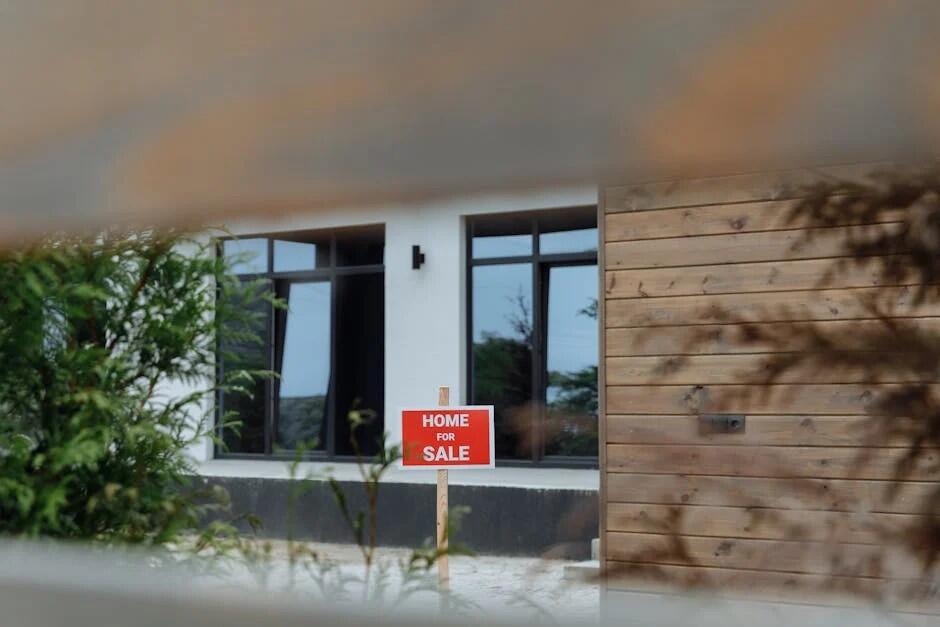Valdosta Today News reports that 47% of U.S. homes have shown signs of mold. These startling statistics highlight how prevalent mold is, raising concerns for both homeowners and buyers.
Mold leaves dark spots on walls and floors, declining a property’s aesthetic appeal and value. But can you sell a house with mold? This question leaves many homeowners unsure of the best way to proceed.
Selling a house with mold requires careful planning and awareness. You need to understand your legal obligations and weigh the options between remediation or selling as-is.
Get insights into the legalities and practical steps you need to take to ensure a successful sale.
Understanding Mold
Mold is a form of fungus that flourishes in damp and humid conditions. It can appear in various colors, such as:
- Black
- Green
- White
- Orange
It can grow on various surfaces, including carpets, drywall, and wood. Common sources of mold growth in homes include:
- Leaks
- High humidity or moisture accumulation
- Poor ventilation
While some molds are harmless, others can cause health problems. They can also weaken your home’s structural integrity.
Health Risks Associated With Mold
Mold exposure can result in health issues such as:
- Allergic reactions
- Respiratory problems
- Chronic sinus infections
These health concerns can make buyers perceive your property as unsafe. Such a perception will demotivate them from buying your property. Identify the extent of the problem and address it effectively to prevent such worries.
Property Value and Marketability
Mold declines a home’s value by compromising its overall structural integrity. Properties with mold issues may:
- Require costly remediation efforts
- Take longer to sell due to buyer hesitation
- Suffer a decrease in resale value
Address mold concerns proactively to attract more potential homebuyers.
Mold Testing and Reports
Mold testing involves analyzing surface and air samples to identify the type and concentration of mold in your home. This process can help you understand the severity of the mold problem.
Mold testing also helps establish whether mold has affected hidden areas in your home. The process typically includes:
- Air sampling
- Surface sampling
- Laboratory analysis
After the laboratory analysis, you will receive a detailed report outlining the type of mold present. You will also be informed of the potential health risks linked to the specific mold species found.
Legal Considerations When Selling a Moldy House
Selling a house with mold requires navigating several legal aspects to protect yourself. Here are some legal considerations to pay attention to.
Real Estate Disclosure Requirements
The law typically requires you to disclose any known issues that could affect your property’s safety and value. Mold problems are not an exemption. Failure to do so could result in lawsuits and other legal consequences.
But be sure to check the disclosure requirements in your jurisdiction. This is essential as the regulations vary from state to state.
As-Is Sales
Selling your house as-is is a reliable option. However, you must disclose any known mold problems. Doing so can help attract investors and buyers willing to take the risk of addressing the mold on their own.
Home Selling Tips and Steps for a Moldy House
Selling a house affected by mold requires a strategic approach. With the right strategy, you can maximize your profits and close the sales successfully. Check out how you can navigate the process effectively.
Identify the Extent of the Problem
Start by assessing the severity of the mold issue. Check for visible signs such as:
- Wall and ceiling discolorations
- Musty odor
- Peeling or bubbling paint
- Water stains or damp spots
Consider hiring an experienced professional mold inspector for a comprehensive assessment. They can help you identify the type and spread extent of the mold. This will help give you critical insights into the necessary remediation steps.
Consider Remediation
If the mold issues are manageable, consider addressing them before selling your property. Some of the remediation efforts you can invest in include:
- Identifying and fixing the source of moisture
- Removing affected materials like drywall
- Cleaning and treating surfaces to prevent recurrence
Addressing these problems can make your home more appealing. It can also boost your property’s value and attract more serious buyers.
However, ensure that you maintain all records of your remediation efforts. This will help prove that the problem was addressed prior to the date of sale.
Price Your Home Competitively
Your pricing strategy can significantly affect how quickly your home sells. If you opt not to remediate any issues, ensure your price reflects the estimated cost that buyers will incur. Consider working with a professional real estate agent if setting a realistic price becomes a challenge.
They can help you assess the value of your property based on market trends. This will help you set a competitive price that will make your property appealing.
Be Transparent
Transparency can build trust and reduce the risks of legal disputes when selling a moldy house. To build trust, provide buyers with property inspection reports.
Also, give them the estimates for remediation costs. If you have already resolved the issue, share documentation of the mold removal process. Let them know of any existing warranties or guarantees for the work done.
Being open about the condition will allow the buyers to make informed decisions. This can facilitate a fair and smooth negotiation process.
Target the Right Buyers
Market your property to investors, flippers, and buyers looking for fixer-uppers. These buyers may be more willing to take on mold issues if the price is favorable. Highlighting the investment potential can be a strong marketing point.
Emphasize features like location, size and the potential for renovation. Take advantage of popular property listing websites and social media platforms. These marketing platforms will help you connect with a broader target audience.
Costs of Mold Remediation
The cost of mold remediation can fluctuate based on several factors. These include:
- Extent of contamination
- Type of mold
- Materials affected
Small isolated areas of mold can cost you a few hundred dollars to remediate. However, if the issue is widespread, the cost may rise to thousands of dollars.
It’s important to weigh the costs of remediation against the potential increase in your home’s value. If the remediation costs are high, it might be more suitable to sell your property as-is.
Tips for Preventing Mold Recurrence
Whether or not you remediate the mold before selling your home, preventing future issues is essential. Some critical steps to help prevent mold recurrence include:
- Fixing leaks
- Improving ventilation
- Using dehumidifiers to improve indoor air quality
- Cleaning regularly
Implementing these preventive measures can protect your property’s value. It can also result in a healthy living environment.
Reasons to Sell Your Moldy House As-Is
Apart from high remediation costs, other reasons to sell your house as is include:
- Expediting the sale process
- Avoiding emotional and physical stress
- Attracting home flippers
- Simplifying negotiations
Selling a house with mold can also be an option if you have time constraints. You’ll be able to avoid lengthy repairs.
However, this doesn’t mean you completely avoid making repairs. Some minor fixes or disclosures may still be necessary to make the property attractive.
Cosmetic damage such as peeling paint is quick and affordable to address. Correcting them can significantly increase your property’s value.
Pros and Cons of Selling a House with Mold (Remediated vs. As-Is)
When selling your house with mold, you might find yourself weighing the options of remediating the mold or selling it as-is. Each option comes with its own set of advantages and drawbacks.
Selling With Mold Remediation
This option has several pros. Some of the advantages include:
- Increased property value
- Fewer buyer concerns
- Faster sales if the mold issue is fully addressed
The cons of this option include:
- High costs
- Emotional stress
- Time-consuming
Selling As-Is
Selling a moldy house as is has several advantages, including:
- Faster sale since no repairs are required
- Lower upfront costs
- Simplicity in Negotiation
Some of the cons you may experience with this option include:
- Lower sale price
- Limited buyer Pool
- Increased risk of legal issues
What to Expect When a Buyer Comes to View Your House With Mold
When selling a moldy house, it’s essential you manage the buyer’s expectations. Create a transparent environment during the viewing. Here’s what to expect.
Initial Reaction
The buyer will likely notice signs of mold, such as discoloration and stains. Their initial response may range from concern to hesitation. Acknowledge the issue calmly and offer context for its existence.
Questions About Mold
Some of the questions you can expect from the buyer include:
- How long has the mold been present?
- What areas of the house are affected?
- Have you tested for mold, and what are the results?
- What steps have you taken to address the mold?
- Was the mold professionally remediated?
Prepare detailed answers and have all the documentation to show the buyer. You will create a more favorable impression by providing clear and honest answers. This may result in a smoother negotiation process.
Concerns About Health and Safety
Health concerns result from the risks that mold poses. Be transparent about the type of mold present and its severity. Let the buyer know the steps you have taken to address the issue.
Interest in Professional Remediation
If you have done remediation, expect questions about what was done and when. Buyers may also be interested in knowing whether you hired a professional to handle the process. Offer reassurance that the problem has been dealt with and won’t recur.
Request for Additional Mold Inspections
Despite presenting mold testing and remediation reports, buyers may request to conduct their own inspection. Allow them to bring in a mold inspector. While this might feel intimidating, it makes them confident about your property.
Price Negotiation
The price negotiation phase will begin once the buyer is assured that the investment is worth the risk. At this stage, both parties work toward agreeing on a fair value for the property.
Buyers may request a price reduction to cover potential mold removal. Be ready for this possibility and consider how much flexibility you have in adjusting the sale price.
Closing the Deal
After agreeing on the price, the process of closing the deal will begin. Some of the things to expect include:
- Finalizing the paperwork
- Dealing with closing costs such as taxes
- Signing the closing documents
- Receiving payments
Once the transaction is complete, you will hand over the keys to the buyer. Ensure the house is ready for this process to avoid further complications.
Choosing the Right Buyer for Your Moldy House
If you opt to sell your property as-is, its crucial you select the right buyer. This will help you receive a fair price for your property. Here are a few key considerations.
Experience With As-Is Properties
An experienced as-is buyer understands the intricacies of purchasing a house with mold. They will, therefore, be better equipped to assess the severity of the mold problem. This helps avoid complications during the negotiation process.
Financial Strength
Choose a buyer who can secure financing without issues. This helps reduce the risk of the sale falling through due to funding problems. You can determine the buyer’s financial strength by requesting a lender’s pre-approval letter.
Reputation
A buyer with a proven track record will likely offer a smoother transaction. They are also likelier to have the right financial strength for a quick closure.
Read online reviews to determine their reputation. Speaking with past sellers will give you insight into their reliability and overall experience.
Can You Sell a House With Mold? Get the Insights You Need to Sell Your House With Confidence
Mold poses aesthetic and health risks, making it a concern when selling a home. But the big question is, “can you sell a house with mold?” By implementing the right strategy, you can successfully sell your home and receive a fair price.
At First Choice Home Buyers, led by experienced professionals like David Kiedis and Anthony Lynam, we make selling your home easy, even with mold. We offer cash for homes in any condition, with no commissions, closing costs, or repairs.
We pay 15% more than our competitors on average. Reach out today to see how easy selling your home can be.







